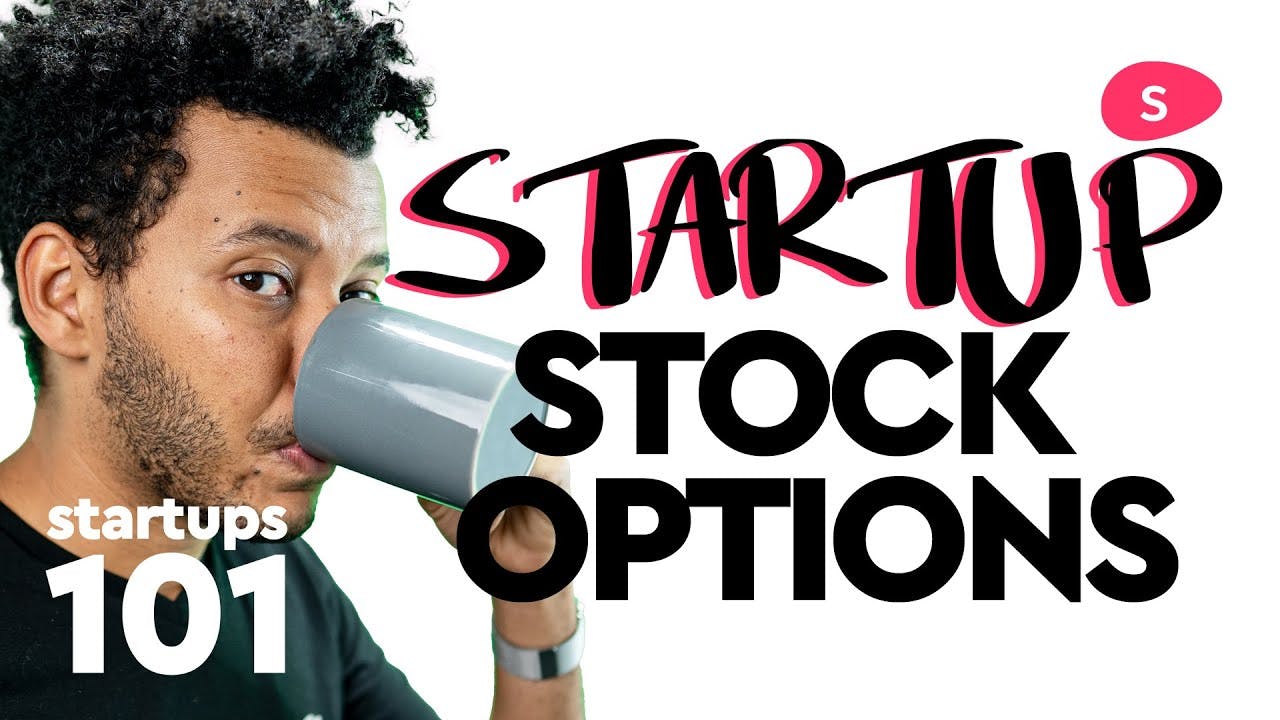Startup Stock Options Explained - Startups 101
15 Nov 2023 (2 years ago)

Intro (0s)
- Startups in the US often compensate employees with both a salary and stock options, aiming to provide them with a stake in potentially increased company valuation.
- This video focuses on stock options specific to private companies, where stock is owned by founders and investors.
Stock option pool and Example (42s) (1m11s)
- A stock option pool consists of a legally documented reserve of company shares designated for employees.
- Using Slidebean as an example, a 5% stock option pool was created alongside an investor round, adding 530,000 new shares to the original 10,000,000, totaling 10,530,000.
Stock options explained and How stock options work (1m40s) (3m19s)
- Stock options allow employees to buy shares at a predetermined price (strike price), established based on the company's valuation at the time.
- For example, Dwight is granted the option to buy 100,000 shares at $0.2374 each, which totals $23,740.
- If the company's value rises (e.g., from $2.5 million to $25 million), Dwight can exercise his option at the strike price, profiting from the difference without initially paying out of his pocket.
- The pool is represented in shares, not percentage, which may dilute over time due to new share issuance.
- Stock options are subject to vesting conditions, typically a 12-month cliff and a four-year vesting period, to encourage long-term employment.
- Options usually expire after 10 years, or shortly after the employee leaves the company, at which point they can be exercised if the company's value has increased.